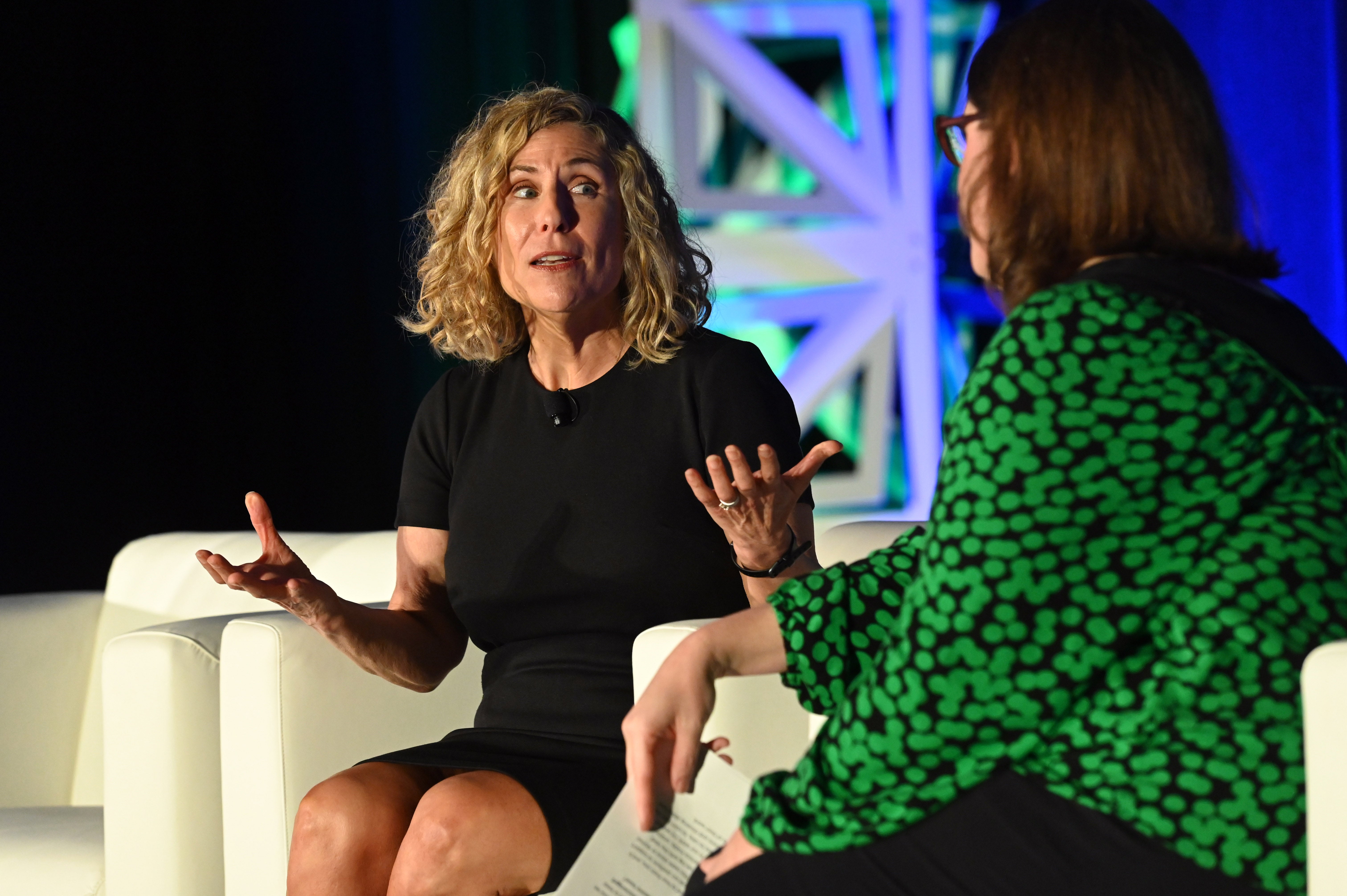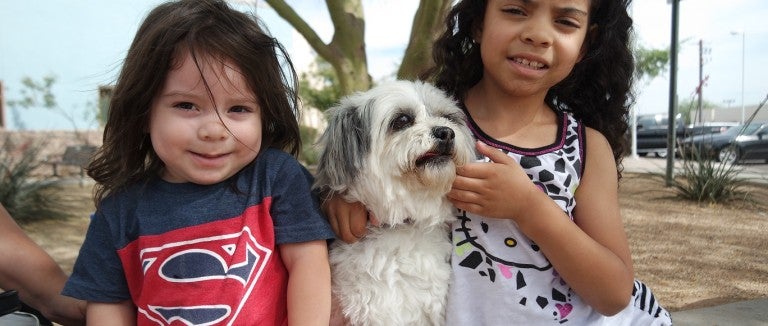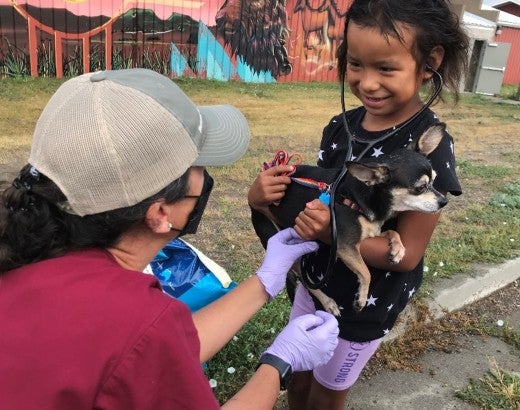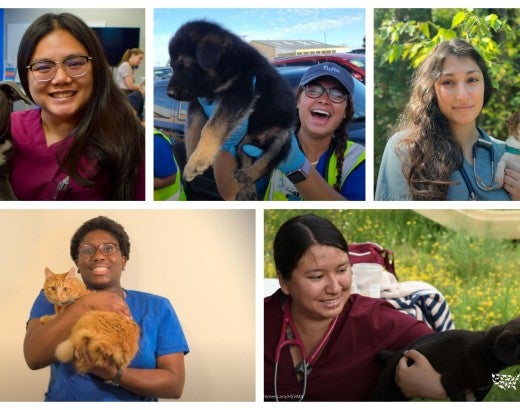I was in New Orleans last week for our Animal Care Expo 2023, an inspiring event that drew more than 2,600 animal welfare professionals. I always love attending Expo, which has been building a stronger animal protection movement for more than three decades. This time around, I joined Hilary Hager, the leader of our Outreach, Engagement and Training team, on the main stage for a feature session, Mission Critical for Animal Welfare, to highlight some of the latest developments for this movement and our organization.
Some of our most recent thinking is about how to expand support for people and their animals typically at the margins of our movement. Aligning with the idea that we are stronger for our inclusion of diverse backgrounds and perspectives, I spoke about our commitment to our access to care work. An increased emphasis on access to care is critical now because many families are struggling, and we believe that no one should have to make the heartbreaking decision to give up their pet because of rising costs.

For years, we’ve been working to deliver pet services to people experiencing poverty and living in underserved areas through our Pets for Life program. Our Rural Area Veterinary Services program helps to fill gaps in veterinary care in Indigenous communities. Humane Society Veterinary Medical Association provides professional support to encourage veterinarians, veterinary technicians and veterinary students to participate in that work. And across our organization, our policy experts address issues that help prevent crisis situations for animals, such as advocating for pet-inclusive affordable housing policies and the expansion of veterinary telemedicine. We also know that the problem is a global one, with animals and their people facing challenges around the world. That’s why our Humane Society International teams work on increasing resources for community cats and dogs, spaying and neutering them and providing them food, from Bolivia to India to Ukraine and Romania.
We are proud of all those achievements. But more needs to be done. Lack of access to care is a bigger problem than anyone can solve single-handedly. Distributing pet food, supplies and veterinary care to pet resource deserts and helping to care for community dogs and cats can’t just fall on the shoulders of already stretched local organizations and animal shelters—everyone can help. That’s why I made the case that access to care is a critical mission for everyone who cares about animals.
We are increasing our focus to provide more vital support to communities by forging partnerships with companies that want to do good. A great example is our partnership with Chewy. We have been working with Chewy on access to care since the early days of the pandemic to deliver pet food and supplies to some of the most underserved areas in the U.S.; Chewy donates the inventory and we ship it around the country to local partners who can distribute the much-needed pet resources to communities in need. To date, we have distributed $42 million worth of pet food and supplies through our partnership.
We want to draw in even more companies to help address the issues of access to care and pet inequity. More Than a Pet is our new campaign, launching next month, to raise awareness of the disparities in access to care, celebrate the many benefits companion animals bring to our lives and provide more resources to those who need them. I’ll tell you more about More Than a Pet in the coming weeks.
Access to care is about embracing the needs of companion animals and their people wherever they reside. All of us have an important role to play. It’s a philosophy that embraces the human in “humane” and believes everyone should have the opportunity to experience the benefits, joy, comfort and love that pets provide.
Follow Kitty Block on Twitter @HSUSKittyBlock.



